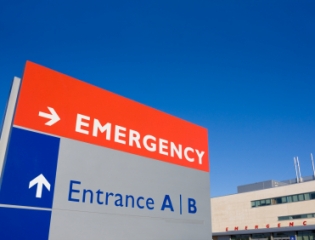After Head Injury, Monitor For Signs of Serious Brain Injury Requiring Immediate Hospitalization
While most sport-related concussions are mild, the potential always exists for a more serious, life-threatening head injury, such as bleeding between the skull and the brain.
Experts recommend that an athlete not be left alone after suffering a head injury and regularly and closely monitored for signs that require immediate hospitalization.
Some experts recommend monitoring for the first 24 to 48 hours, while others use a cut-off of four hours of frequent observation, with a check at least every 15 minutes, after which the athlete can be allowed to rest.
Experts unanimously agree that an athlete must go to a hospital emergency room if he or she:
- Has a headache that gets worse and does not go away
- Has persistent or increasing neck pain
- Is very drowsy or can’t be awakened (woken up)
- Can’t recognize people or places
- Has nausea or vomiting
- Behaves unusually, seems confused, or is irritable
- Becomes increasingly restless or agitated
- Experiences convulsions or seizures (arms and legs jerk uncontrollably)
- Has weakness, numbness or tingling in arms, legs or face
- Is unsteady walking or standing
- Has slurred speech
- Has one pupil which is larger than the other
- Loses consciousness (even briefly)
- Will not stop crying/cannot be consoled
- Has difficulty understanding speech or directions, or
- Their symptoms get worse.
The advice to parents: err on the side of caution.
Sources:
Sports Concussion Assessment Tool 3. Br J Sports Med 2013;47:259.
Child SCAT-3. Br J Sports Med 2013;47:267.
Kutcher JS & Gerstner J. Back in the Game: Why Concussion Doesn’t Have To End Your Athletic Career. (Oxford University Press, New York 2016).



